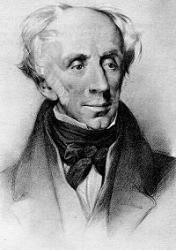
1752 - 1832 Person Name: Burder Hymnal Number: 150 Author of "Lord, dismiss us with thy blessing" in Hymn, Tune, and Service Book for Sunday Schools Burder, George, born in London, June 5, 1752, and trained as an engraver. At the age of 24 he commenced preaching with the Calvinist Methodists, but subsequently joined the Congregationalists,and was pastor sucessively at Lancaster, Coventry, and Fetter Lane, London. He was one of the active founders of the Religious Tract, the London Missionary, and the British and Foreign Bible Societies, and some time editor of the Evangelical Magazine. He died May 29, 1832. His works include Village Sermons, 1704; Sea Sermons, 1821; Cottage Sermons, 1826, and others. He is known to hymnology by his Collection of Hymns from various Authors, intended as a Supplement to Dr. Watts, &c, 1784. (Preface dated Nov. 20, 1784.) It had attained to the 25th edition in 1827. To this collection he contributed 4 hymns, the best known being, "Sweet the time, exceeding sweet" (q.v.), sometimes altered to "Great the joy when Christians meet." The remaining three, all from the 1st edition 1784, are:—
1. Come, dear Desire of nations, come. Missions.
2. Come ye that know and fear the Lord. Love of God. In Dr. Hatfield's Church H. Bk., N.Y., 1872, 5 st. out of 9 are given as No. 236.
3. Lord, solemnize our trifling minds. Before Sermon. Altered to "Great God, impress our trifling minds," in the New Congregational Hymn Book, No. 786, &c.
Burder's Collection is of importance in the history of Congregational hymnody. The 1st edition, 1784, contained 187 hymns; 2nd edition, 1784, 211; 9th edition, 1803, 257 hymns; 18th edition, 1820, 277; and the last, the 25th edition, 1827, 294. His son, Henry Foster Burder, published a Collection of Ps. & Hymns, 1826; and another son, the Rev. John Burder, also compiled a Collection published without date. To the 18th edition, 1820, of G. Burder's Collection, the wife of his son H. F. Burder contributed "And will the God Who reigns on high " (Sunday Schools), under the signature “S. M. Burder" [Sophia Maria].
-- John Julian, Dictionary of Hymnology (1907)
George Burder

